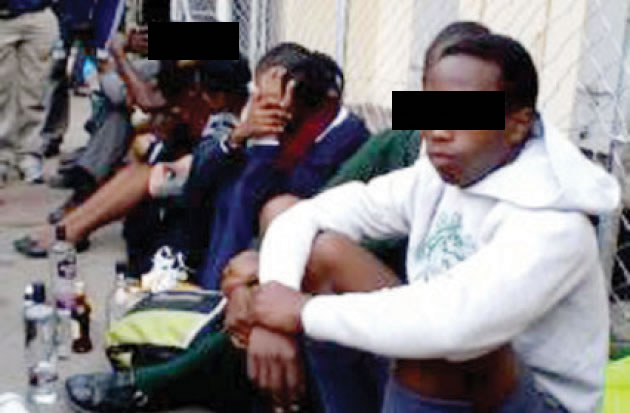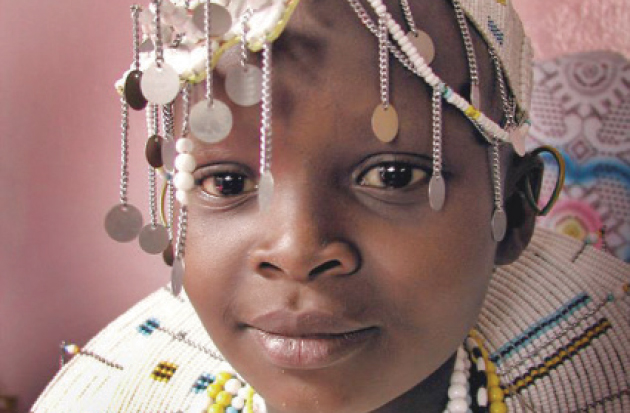Corporal punishment shouldn’t be banned

 Saul Gwakuba Ndlovu
Saul Gwakuba Ndlovu
On June 17, 2015 the Constitutional Court of Zimbabwe suspended sine die a High Court judge’s decision outlawing the use of corporal punishment on children.
Just about the end of the same month, a group of girls and boys from three Bulawayo high schools were rounded up from the city’s main park where they had been drinking various alcoholic beverages and having a ding-dong sexual binge.
The police later released the tipsy delinquents into their parents’ and guardians’ custody after they had first whisked them to Bulawayo Central Police Station together with their bottles of liquor some of which was hard stuff such as vodka, brandy and dry gin.
It has not been made public by the concerned authorities, the police, the schools and the parents or guardians, what punitive measures were taken, if any were, against the erring children.
The behaviour of any nation’s youths is of much interest because the future of every nation is of vital importance to the youths. A generation made up of delinquent youths is not a blessing but a curse to the nation concerned.
There has been a great deal of talk about corporal punishment being inhuman and highly embarrassing to the recipients, and that parents, teachers and courts ought to be barred from caning children.
It is culturally refreshing that the Constitutional Court has given a clear ruling on this matter, as the High Court’s earlier ruling had actually made authorities that are decisive to the children’s upbringing powerless and irrelevant.
In our culture, children’s public behaviour is a concern of, first and foremost, the parents or guardians and, second, school authorities and, third, the community members at large and, fourth, law enforcement authorities.
It is necessary to explain how parents or guardians are required by tradition, law and custom to mould and monitor their children’s behaviour and characters. That is a responsibility of every adult being with the exception of reptiles, fishes and amphibians.
A school teacher is in the place of parents, loco parentis, concerning the children not only in their particular schools, but in connection with every child. It is important to recognize that school teachers are not only professionals but role models to the nation as a whole.
For them to command respect, they must have the authority over their charges because they are in effect parents away from the children’s homes. A parent’s duty to his or her children is to make sure that they behave in a way that safeguards their welfare and their future.
Children, especially boys, will always behave like children by experimenting with whatever, and however, including sexually, and with drugs and alcoholic beverages. It is the duty of parents, teachers, the community and law enforcement officials to enforce discipline on every child.
What if some children misbehave more or less in the same manner as those who where found having a whale of time recently in the Bulawayo Central Park?
Three authorities should have put their heads together to come up with an appropriate type of punishment. The authorities concerned are the schools, the parents or guardians and the police.
Schools had a responsibility to be seen to be concerned about the abuse of their respective uniforms, how the children’s behaviours negatively affected the image of each of the three concerned colleges. The police could have charged the children with consuming alcoholic beverages in public, and, consequently, become a public nuisance.
Corporal punishment could have been the best option in such circumstances to send a clear message to the entire nation, especially to other children with similar delinquent tendencies. Corporal punishment is a vital last but one punitive measure on such delinquents. The last being imprisonment.
It is not love of our children but sheer negligence for authorities to let such blatant delinquency to go scot-free. Children should be protected not only against molesters but also against their very selves. Child molesters must be punished, and so must juvenile or minor self-molesters for self-molestation is an unacceptable anti-social action.
Zimbabwe should not be distracted by nations that uphold self-destructive social values. We have a very rich cultural tradition that deserves to be observed. Our children should be taught that an important part of physical self-preservation is sexual self-preservation. Couples that get married after acquiring professional qualifications face bright future socio-economic prospects, and are sources of pride and inspiration to their families and communities.
We all know that some children are more wayward than others. If they are not corrected in their early lives, they develop to be very dangerous anti-social elements, becoming in the process national problems.
Correcting such children may very well involve the application of corporal punishment. Without that kind of punishment, authorities are rendered powerless to deal with juvenile delinquency. Corporal punishment should be used as a punitive measure of the last resort.
Wise authorities do not spare the rod because doing so spoils the child. The lash produces pain which causes fear and the required respect for acceptable social and cultural norms and practices.
In the 1940s, Garfield Todd (later Sir Garfield Todd) caned a group of naughty girls at Dadaya Mission where he was the principal.
His school was one of the best educational institutions in the country. It produced some of the most prominent leaders this country has had. Among those leaders there was Eddison Zvobgo.
In 1948, Dlamini Wilson Muwutshiwa Kuluve (Tata Tjibhoyi) saved Dombodema Mission School by means of a sjambok from total collapse because of sexual immorality. He did not spare corporal punishment in exposing the moral rot that had attacked the school since 1943 because of moral laxity introduced by the then head-teacher, Amos Dambe Tjuma from Botswana who was eventually expelled for impregnating one of his assistant teachers.
- Saul Gwakuba Ndlovu is a retired, Bulawayo-based journalist. He can be contacted on cell 0734 328 136 or through email. [email protected]












Comments